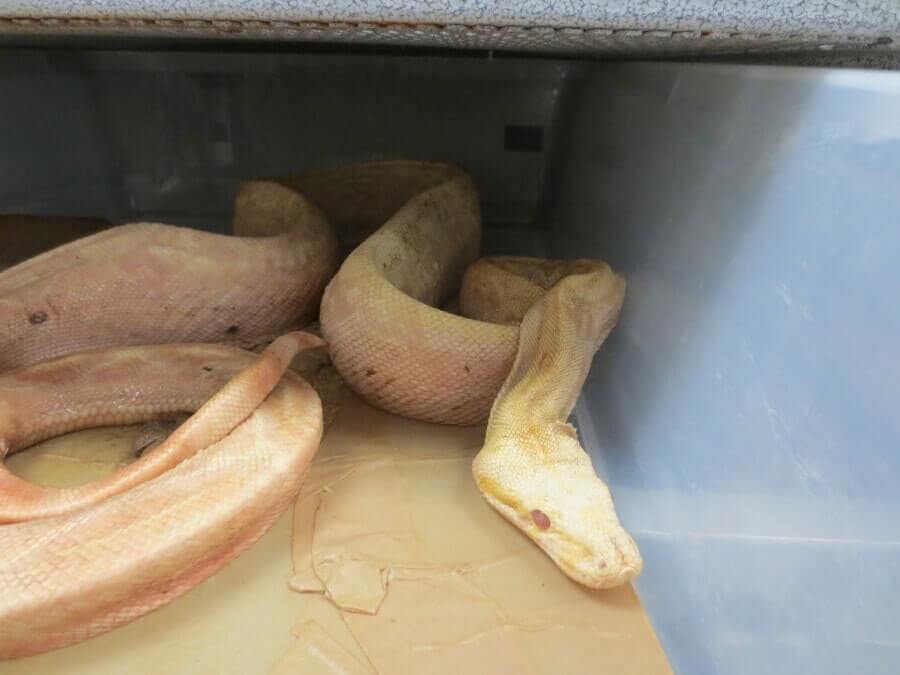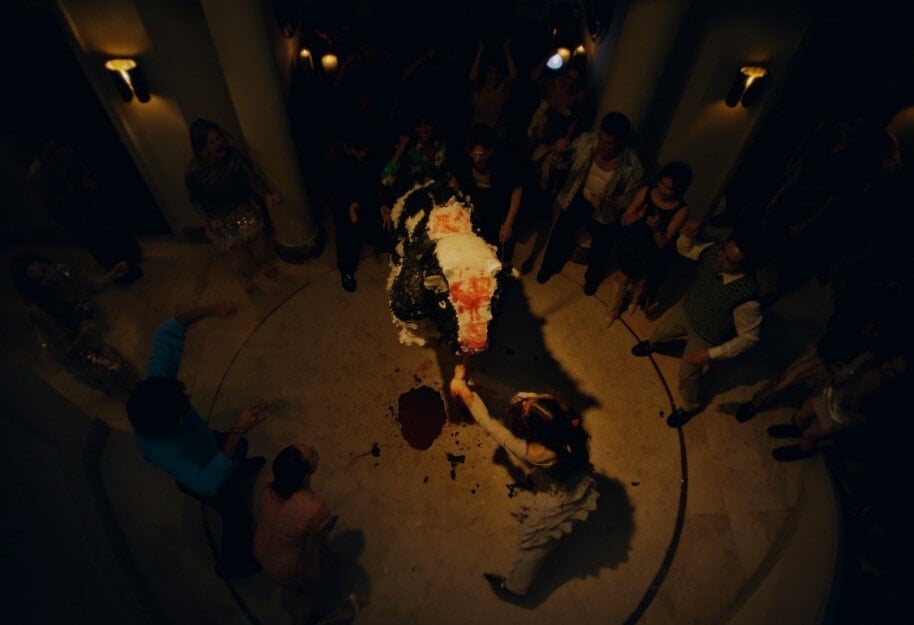After learning that locally based reptile mill The Gourmet Rodent—a self-professed nationwide supplier to Petco—keeps thousands of snakes in small, barren plastic tubs without room to even extend their bodies to full length, PETA fired off a letter today to owner Mike Layman calling on him to move the snakes at his compound into enclosures at least as long as they are and to end the company’s misleading claims that it’s acceptable to house snakes in tanks that are just a third of the length of their bodies.
Numerous peer-reviewed studies make it clear that to be psychologically and physically healthy, snakes held in captivity must be able to fully stretch out their bodies and that snakes who can’t stretch out feel stressed and experience various health problems, including injuries, joint disease, constipation, and obesity.
“At this wretched reptile mill, tens of thousands of snakes are confined to tiny tubs stacked from floor to ceiling, unable to stretch out or engage in any natural behavior,” says PETA Senior Vice President Daphna Nachminovitch. “The pet trade peddles in misery, and PETA urges people never to buy a snake or any other animal from a pet store or breeder.”
PETA—whose motto reads, in part, that “animals are not ours to abuse in any way”—points out that Every Animal Is Someone and offers free Empathy Kits for people who need a lesson in kindness. For more information, please visit PETA.org or follow the group on X, Facebook, or Instagram.
PETA’s letter to Layman follows.
March 7, 2024
Mike Layman
Owner
The Gourmet Rodent
Dear Mr. Layman:
I’m writing about the tens of thousands of snakes confined to your breeding warehouse. Will you commit to improving conditions for these animals and end your company’s false claim that it’s acceptable to keep snakes in tanks that are just a third of the animals’ length?
A brief video tour of your compound—as well as numerous published photographs—show plastic tubs reaching from the floor to the ceiling in aisle after aisle of snakes. The video shows you removing three of the snakes crammed into these tiny tubs. All these animals—and those you’ve been photographed handling—are obviously much longer than the tubs to which they are confined and can’t even extend their bodies to full length. PETA investigations have found that snakes used for breeding spend their entire lives in tubs like this, intensively confined like dogs at puppy mills.
Such constant confinement causes any animal to suffer and has been implicated in abnormal behavior as well as more than 20 diseases found in snakes kept this way. It’s widely acknowledged among experts—and has been for years—that habitats that allow snakes to stretch and move around are crucial to their physical and behavioral needs. A 2019 study of 65 snakes found that many of them assumed fully stretched-out postures within just an hour of observation during the daytime. A 2021 study found that “recommendations [of] enclosure sizes shorter than the snakes were based entirely on decades-old ‘rule of thumb’ practices that were unsupported by scientific evidence” and that “[r]ectilinear behavior is normal, distinct, and common across snake species, and … fundamental to snake health and welfare.”
Even the care sheet produced by a pet industry lobbying group states that snake enclosures “should provide [the animal] sufficient space to stretch out and move freely.” Why then does your company’s “care sheet” for ball python snakes advise people that these animals can be crammed into tanks just a third of their length? No one would recommend that a 3-foot-long German shepherd be kept in a crate just 12 inches long. Yet The Gourmet Rodent approves of and promotes keeping a 6-foot-long snake in a tank that’s just 2 feet long.
Stretching out fully and moving in a straight line are essential to snakes’ well-being. Accordingly, PETA looks forward to your prompt confirmation that (a) your facility—the largest of its kind in the world—and lucrative company will give this basic opportunity to the snakes you breed and ship around the world and that (b) you have removed the above false and misleading claim from your website and any other materials. Thank you for your time and consideration.
Sincerely,
Daniel Paden
Vice President of Evidence Analysis
The post PETA Demands More Room for Snakes, Calls On Newberry Reptile Mill and Petco Supplier to Stop Warehousing Reptiles in Tiny Plastic Tubs appeared first on PETA.





